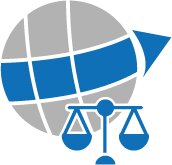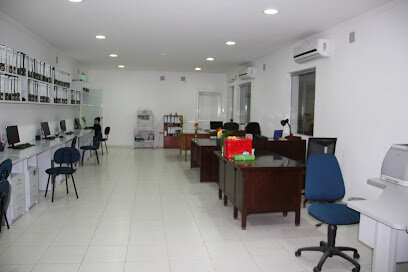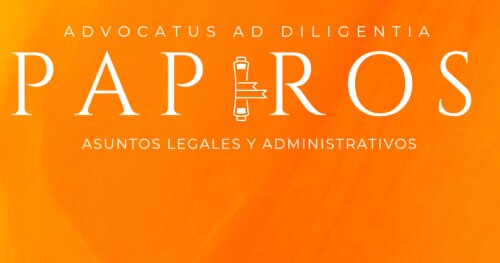Best International Lawyers in Paraguay
Share your needs with us, get contacted by law firms.
Free. Takes 2 min.
Or refine your search by selecting a city:
List of the best lawyers in Paraguay
About International Law in Paraguay:
International law in Paraguay refers to the body of legal rules and regulations that govern relationships between different countries and international organizations. It covers a wide range of issues such as treaties, diplomatic immunity, trade agreements, and more. Understanding international law is essential for individuals and businesses engaging in cross-border transactions or facing legal disputes with an international component.
Why You May Need a Lawyer:
You may need a lawyer in Paraguay for international legal matters such as drafting and negotiating international agreements, resolving disputes with foreign parties, obtaining necessary permits and licenses for international business operations, and navigating the complexities of international trade regulations. A lawyer with expertise in international law can provide valuable advice and guidance to ensure compliance with local and international legal requirements.
Local Laws Overview:
Paraguay is a civil law jurisdiction with a legal system based on codes and statutes rather than case law. In terms of international law, Paraguay has ratified numerous international treaties and conventions governing various aspects of international relations, trade, and human rights. It is important to be aware of these treaties and the specific legal obligations they impose on individuals and businesses operating in Paraguay.
Frequently Asked Questions:
1. What is the process for enforcing a foreign judgment in Paraguay?
In Paraguay, the enforcement of foreign judgments is governed by the Civil Procedure Code. The process involves obtaining a recognition and enforcement order from the Paraguayan court where the judgment debtor is located.
2. Are there any restrictions on foreign investment in Paraguay?
Paraguay encourages foreign investment and has implemented various incentives to attract foreign capital. However, certain sectors such as media, transportation, and defense are subject to restrictions on foreign ownership.
3. How can I register a trademark in Paraguay?
To register a trademark in Paraguay, you must file an application with the National Directorate of Intellectual Property. The application must include a description of the trademark and details of the goods or services for which it will be used.
4. What are the requirements for obtaining a work visa in Paraguay?
To obtain a work visa in Paraguay, you must have a job offer from a Paraguayan employer and meet certain educational and professional qualifications. The employer must also demonstrate that there are no qualified Paraguayan candidates available for the position.
5. How can I resolve a commercial dispute with a foreign party in Paraguay?
Commercial disputes with foreign parties in Paraguay can be resolved through negotiation, mediation, arbitration, or litigation. It is advisable to seek legal advice to determine the most appropriate course of action based on the specific circumstances of the dispute.
6. What are the tax implications of conducting international business in Paraguay?
International businesses operating in Paraguay are subject to corporate income tax, value-added tax, and other taxes depending on the nature of their operations. It is important to consult with a tax advisor to ensure compliance with local tax laws and regulations.
7. Can I hire foreign employees in Paraguay?
Paraguay allows the hiring of foreign employees under certain conditions, such as obtaining a work visa and complying with labor and immigration laws. Employers must ensure that foreign employees have the necessary work permits before commencing employment.
8. What are the legal requirements for establishing a branch office in Paraguay?
Establishing a branch office in Paraguay requires registration with the Public Registry of Commerce and compliance with corporate governance and reporting obligations. It is advisable to seek legal advice to ensure proper incorporation and compliance with local laws.
9. How are international disputes between countries resolved in Paraguay?
International disputes between countries in Paraguay are often resolved through diplomatic negotiations, mediation, or arbitration. Paraguay is a party to various international treaties and conventions that provide mechanisms for the peaceful resolution of disputes between nations.
10. Are there any specific regulations for importing and exporting goods in Paraguay?
Importing and exporting goods in Paraguay are subject to customs regulations, licensing requirements, and trade restrictions. It is important to be aware of these regulations and comply with them to avoid potential legal issues and penalties.
Additional Resources:
For more information on international law in Paraguay, you can consult the Ministry of Foreign Affairs, the Paraguayan Chamber of Commerce, and the National Directorate of Intellectual Property. These organizations provide valuable resources and guidance on legal matters related to international relations, trade, and intellectual property rights.
Next Steps:
If you require legal assistance in international law matters in Paraguay, it is recommended to seek the advice of a qualified lawyer with expertise in international law. A legal professional can provide personalized advice and representation to help you navigate the complexities of international legal issues and ensure compliance with local and international regulations.
Lawzana helps you find the best lawyers and law firms in Paraguay through a curated and pre-screened list of qualified legal professionals. Our platform offers rankings and detailed profiles of attorneys and law firms, allowing you to compare based on practice areas, including International, experience, and client feedback.
Each profile includes a description of the firm's areas of practice, client reviews, team members and partners, year of establishment, spoken languages, office locations, contact information, social media presence, and any published articles or resources. Most firms on our platform speak English and are experienced in both local and international legal matters.
Get a quote from top-rated law firms in Paraguay — quickly, securely, and without unnecessary hassle.
Disclaimer:
The information provided on this page is for general informational purposes only and does not constitute legal advice. While we strive to ensure the accuracy and relevance of the content, legal information may change over time, and interpretations of the law can vary. You should always consult with a qualified legal professional for advice specific to your situation.
We disclaim all liability for actions taken or not taken based on the content of this page. If you believe any information is incorrect or outdated, please contact us, and we will review and update it where appropriate.
Browse international law firms by city in Paraguay
Refine your search by selecting a city.















